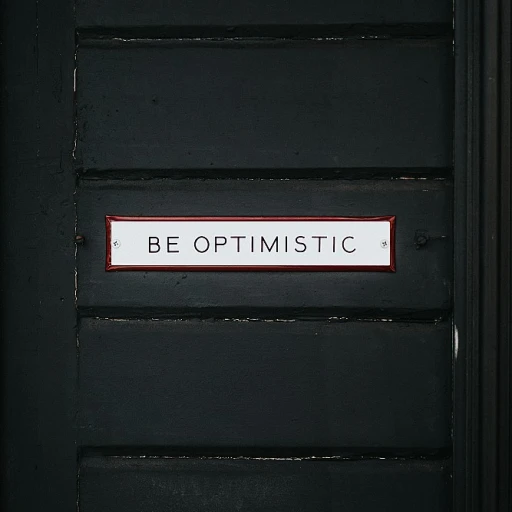
Understanding AI in HR Reporting
AI's Role in Revolutionizing HR Reporting
Artificial intelligence is reshaping the way HR departments handle reporting and data analysis. By integrating AI into HR reporting processes, businesses can gain a significant edge in managing their workforce efficiently and effectively. AI leverages vast amounts of data to provide actionable insights, enhancing traditional HR functions. In essence, AI transforms raw HR data into valuable information, offering a clearer picture of workforce dynamics and trends. This transformation allows HR professionals to make data-driven decisions, significantly improving the quality and accuracy of their reports. Moreover, AI-powered reporting tools not only automate routine tasks but also offer predictive analytics capabilities, anticipating future trends and challenges. This evolution in HR reporting is part of a larger trend towards digital transformation in the workplace. As we delve deeper into AI applications in HR, it becomes evident that AI is pivotal to optimizing not just reporting, but overall decision-making processes, employee engagement, talent management, and more. To explore the broader implications of AI, one can also focus on AI's integral role in modern HR practices, such as compliance and risk management, which is yet another domain where AI showcases its potential.Data-Driven Insights for Better Decision Making
Data-Driven Insights for Improved Human Resources Decision Making
Utilizing artificial intelligence in human resources reporting can significantly enhance decision-making processes. By swiftly analyzing large volumes of data, AI tools enable HR professionals to gain a deeper understanding of various aspects of their workforce. Here are some ways AI provides data-driven insights for more informed HR decisions:- Uncover Patterns and Trends: AI algorithms can examine historical HR data to identify patterns and trends, offering predictions and insights that can shape strategic planning. For example, recognizing patterns in employee turnover rates can help in formulating effective retention strategies.
- Tailor Strategies to Employee Needs: AI assists in personalizing HR strategies. By crunching data related to employee performance, learning preferences, and job satisfaction, HR teams can tailor development programs and interventions to the unique needs of each employee.
- Optimize Recruitment Processes: Through AI-driven analytics, HR managers can better understand the success rates of different recruitment channels and applicant sourcing strategies. This data-intelligence helps optimize recruitment efforts, ensuring they target the most promising candidates efficiently.
Enhancing Employee Engagement and Experience
Boosting Workforce Engagement using AI Tools
Artificial intelligence has become a powerful ally in enhancing employee engagement and overall experience within the workplace. By leveraging AI, HR departments can gain deeper insights into employee sentiments and engagement levels, which pave the way for more targeted interventions. Here's how AI contributes to this critical aspect:- Personalized Learning and Development: AI assesses the skills and development needs of each employee, offering personalized learning paths tailored to individual career aspirations. This not only fosters personal growth but also aligns employee strengths with organizational goals.
- Nurturing a Culture of Feedback: AI-driven feedback tools facilitate continuous communication between employees and management. By analyzing feedback data, organizations can identify areas that require attention and implement improvement strategies promptly.
- Enhancing Onboarding Experiences: A robust AI system can transform the onboarding process into a seamless journey for new hires. Through intelligent task automation and personalized induction programs, AI ensures that new employees feel welcomed and fully integrated into their roles quickly. For more insights on how AI is redefining this crucial phase, visit this comprehensive article on enhancing the employee onboarding experience with AI.
- Predictive Attrition Analytics: Machine learning algorithms can predict employee turnover by analyzing patterns and behaviors over time. This allows HR teams to proactively address potential issues impacting engagement, retaining top talent, and reducing churn.
Streamlining Talent Management
Optimizing Workforce Management
Embracing artificial intelligence in human resources can significantly enhance the efficiency and effectiveness of talent management processes. By leveraging AI, HR professionals can streamline various aspects of workforce management, ensuring a more organized and strategic approach to talent acquisition, retention, and development.
One of the key benefits of AI in talent management is its ability to automate repetitive tasks. This automation not only saves time but also reduces the likelihood of human error, allowing HR teams to focus more on strategic activities such as building strong company culture and improving employee satisfaction.
Moreover, AI tools can analyze employee data to detect patterns and trends that may otherwise go unnoticed. These insights enable HR professionals to proactively address potential issues like high turnover rates or declining employee morale. As a result, organizations can take timely action to enhance the overall employee experience, ultimately boosting productivity and job satisfaction.
Additionally, AI-driven talent management systems can enhance recruitment processes by identifying the best-fit candidates more efficiently. By analyzing candidate data, AI can match applicants with roles that align with their skills and experience, ultimately leading to better hiring outcomes and reduced turnover.












